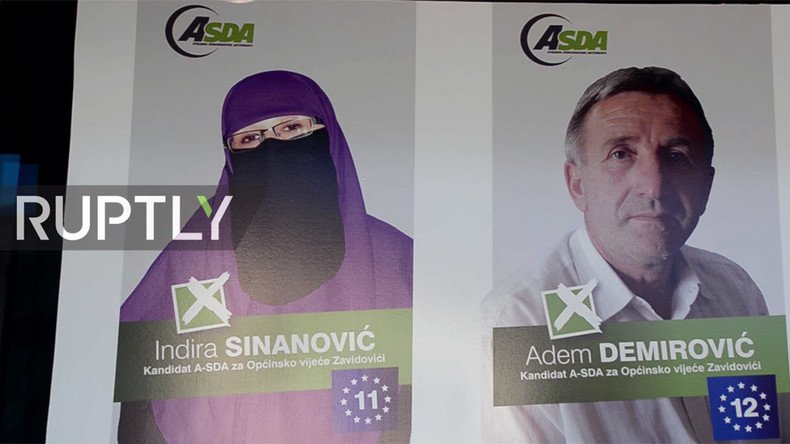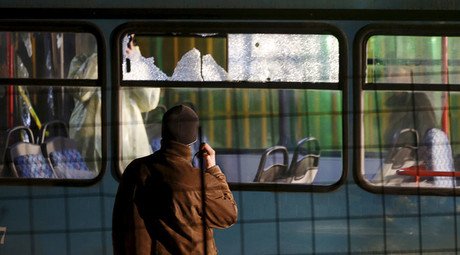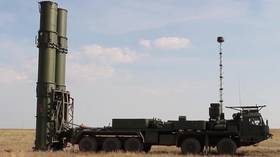Bosnian niqab-wearing politician seeks office to ‘reduce prejudice’ & help poor

A niqab-wearing politician in Bosnia seeks to become the first fully veiled woman in the Balkan country to run for public office. If elected, Indira Sinanovic says she wants to help the poor and “break down prejudice” experienced by those wearing niqabs.
The 37-year-old mother of two is running in her hometown of Zavidovici, which is about 100 kilometers (62 miles) north of the capital Sarajevo. She wears the niqab, which is a veil worn by Muslim women that covers the whole face, except the eyes.
Speaking ahead of the election on Sunday, she said that she wants to help “socially vulnerable families” as she has become aware of their problems after carrying out humanitarian work. She also says that she wants to stop discrimination against women who wear the veil.
“I will try to break down discrimination and the distorted image of women who wear the hijab. People need to have the chance to meet us and to get to know who we are. My experience shows that, after knowing us, people always say they are sorry for having prejudices and for perceiving us as something we are not. We are ordinary citizens,” she said, as cited by RT’s video agency Ruptly.
Sinanovic, who aside from her humanitarian work is employed as a journalist, believes that if she is elected, she will have the opportunity to meet more people, while also being able to help people “know more about us.”
Bosnia, which has a large indigenous Muslim population, due to having once been part of the Ottoman Empire, has no laws against members of the public wearing the niqab or the burqa. Sinanovic, however, says she is alarmed by a recent ruling that says court officials are no longer allowed to wear headscarves.
“It’s the basic right of every citizen,” she said, adding that she has suffered from discrimination in the past and has been called names on the street such as ‘ninja’ or ‘terrorist,’ and has been told, ‘go to Afghanistan’ or ‘go to Syria.’
Although Islam has been traditionally liberal in Bosnia, which is an ethnic mix of Orthodox Christians, Catholics, and Muslims, there has been a rise in radical Islam which partly stems from the influence of Saudi-sponsored mosques, which began to appear following the Bosnian War in the 1990s.
In November, two Bosnian soldiers were killed and three civilians injured in an attack by a radical Sunni Muslim extremist who shouted “Allahu Akbar” (God is Great in Arabic) before killing his victims. The attack took place on the outskirts of Sarajevo.
Sinanovic is fighting a rising tide of opposition to the niqab and burqa in Europe. On Friday, the Bulgarian parliament passed legislation which effectively bans burqas in public places. The measure was introduced to step up security in the country following a series of terrorist attacks in Europe.
Bulgaria burqa ban: Country outlaws face-covering clothes in public places https://t.co/6w5KiaK7tspic.twitter.com/5ZNTWAVlo9
— RT (@RT_com) September 30, 2016
These who fail to comply will face fines of up to 1,500 leva (approx. $860) and be stripped of social privileges. Muslims make up around 12 percent of the population of Bulgaria.
“The law is not directed against religious communities and is not repressive,” senior lawmaker of the ruling center-right GERB party Krasimir Velchev insisted, according to Reuters. “We made a very good law for the safety of our children,” he added.
Days earlier, the Swiss parliament approved a draft bill aiming for a nationwide burqa ban, initiated by the right-wing Swiss People’s Party (SVP). “No person shall cover [his/her] face in public and in places accessed by the public (exempt for holy places),” the statement of the initiative reads.













